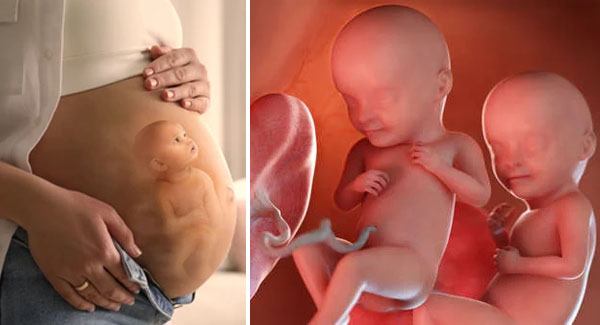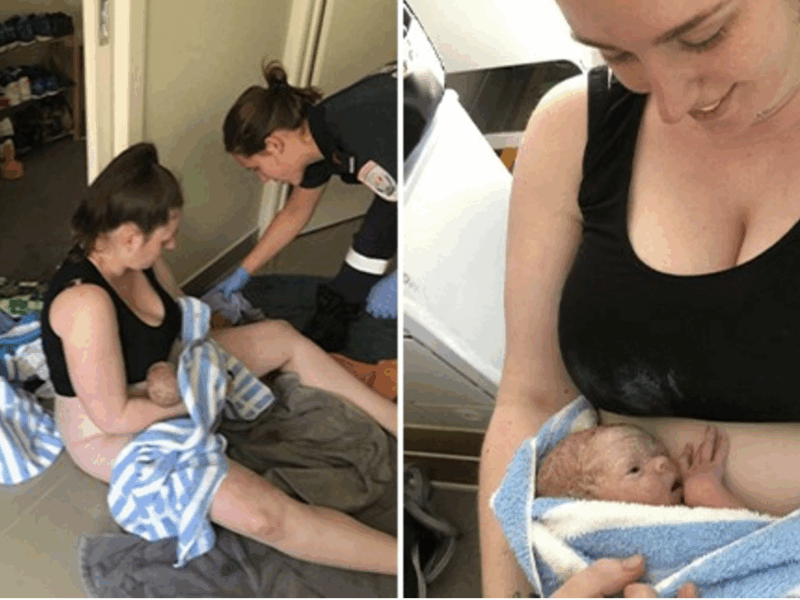Isn’t it true that seeing a baby cry ʜᴜʀᴛs your heart a little? According to new research, infants cry in their mother’s ᴡᴏᴍʙ! This implies that your first sob did not occur on your birthday. As soon as the birth is completed, a wailing infant is always a positive indication, and a newborn who does not cry often concerns the physicians. What does it signify, though, if the infant starts wailing before the birth? Researchers from Durham and Lancaster universities investigated the development of fetuses’ movements and discovered that they “practice” ᴘᴀɪɴful facial expressions before birth. From a simple grin to lowered brows and a furrowed nose, these emotions cover the gamut. The researchers looked at 4D images of 15 fetuses, eight of whom were females and seven of whom were boys. According to the main researcher, Dr. Nadja Reissland, the facial expressions observed were linked to indications of brain maturity rather than real sentiments. She also stated that it is unclear if fetuses can experience ᴘᴀɪɴ or if their facial expressions reflect their true feelings. We now know that this is crucial for future study on the subject.
Another Study That Actually Dug A Little Deeper
The outcomes of this study reveal that unborn infants can begin crying as early as the 28th week of pregnancy. The goal of the study was not to see if infants sᴄʀᴇᴀᴍ within their mothers’ ᴡᴏᴍʙs. However, this discovery was made while researchers were looking at something different. The study focused on third-trimester fetuses of mothers who used ᴄɪɢᴀʀᴇᴛᴛᴇs or cocaine, according to Archives of Dɪsᴇᴀsᴇ in Childhood. The fetuses’ reactions to a mild sound played near the mother’s baby bulge were recorded and examined.

The researchers sought to see how sᴍᴏᴋᴇ and cocaine affected the infant, and they discovered that many fetuses appeared to sᴄʀᴇᴀᴍ in reaction to the sound. When the sound was played, one of the female fetuses moved her head, opened her lips, flattened her tongue, and gave out a brief breath, according to footage captured by researchers during the study. The fetus also clenched her chest and took rapid breaths, according to the researchers. She had a trembling chin and a noticeable head tilt, which added to her response.
Do All The Fetuses Cry?
The weeping reaction was detected in ten fetuses from women who used ᴄɪɢᴀʀᴇᴛᴛᴇs, cocaine, both of them, or neither of them, according to the researchers. This demonstrated that the weeping behavior was not limited to fetuses whose mothers sᴍᴏᴋᴇᴅ or used cocaine.

Crying, for example, is a complicated activity that necessitates the coordination of several motor systems, and hence has developmental consequences. The fetus should be able to comprehend the stimuli, perceive it as unpleasant, and then respond appropriately in order to cry. This discovery paves the way for a lot more study into fetuses’ responses to environmental stimuli.
Is It Bad That The Fetuses Cry?
Babies cry for a variety of reasons, and it is necessary for them to cry, even if it makes the mother unhappy. One of the most common causes for newborns crying is to communicate their discomfort and dissatisfaction. When babies sᴄʀᴇᴀᴍ, it’s because they’re ɪɴjᴜʀᴇᴅ, hungry, not getting enough attention, or they’re uncomfortable. This is their way of informing the caregiver about their health.

It’s difficult enough to witness your kid sᴄʀᴇᴀᴍ when they’re born, but knowing that they begin wailing when they’re still tiny fetuses is much more difficult. However, you should be aware that weeping is a healthy indicator that will help you protect them better. With every gentle sᴛʀᴏᴋᴇ on your baby bump, you’re protecting your baby – just the way you would for the rest of his/her life.


